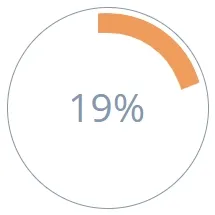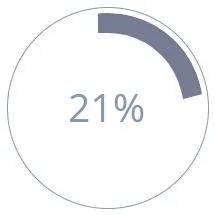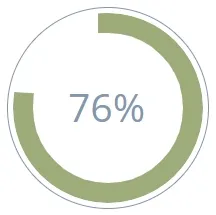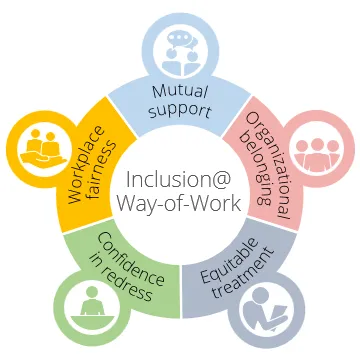An effective organization is one that fully leverages the talents and potential of all of its employees, regardless of background. Although the moral reasons for this are self-evident, the increasing competition in a variety of sectors for talented workers also makes fostering diversity important for the strategic objectives of the organization as whole.

improved innovation
Companies with above-average diversified management teams reported innovation revenue that was 19% higher
Diverse leadership teams boost innovation
Boston Consulting Group 2018

better profitability
Companies within the top quartile for diversity are 21% more likely to have good financial performance
Delivering through diversity
McKinsey & Company 2018

strategic priority
Organisations are investing in D&I programmes at unprecedented rates, with 76% now saying it is a value or priority
Global Diversity & Inclusion Survey
PwC 2020
In Mindset’s view, there is no difference between an effective human capital strategy, and the presence of processes that protect and support all members of an organization. The barriers to achieving an organization that effectively incorporates diversity within its workforce are often more nuanced than those addressed when solely focusing on engagement or culture. In particular, an aggregate review of the organization as a whole is unlikely to reveal any issues, or progress for the workers that would be impacted the most.
This is where a diagnostic survey comes in: a scientifically designed diversity and inclusion survey will help you to measure and recognise the state of diversity in your organization, and also to diagnose and address the issues that drive inclusion – ultimately helping you to unleash the power and benefits of diversity.
Mindset's Inclusion@Way-of-Work Model
Mindset’s Inclusion@Way-of-Work diversity and inclusion model will help you to build a diverse, equitable and inclusive work environment that will attract the right talent and engage your employees – and ultimately help to increase your bottom line. The model measures the contributing factors that have a direct impact on inclusion and diversity in the workplace:
- Equitable Workplace Treatment: whether or not employees report having experienced discriminatory treatment within the organization on account of their background.
- Confidence in Redress: how confident your employees feel that there are systems in place to make sure they are protected and respected while workplace conflicts are resolved.
- Foundational Fairness: the extent to which the workplace is consistently experienced as a fair place – full participation relies on a universal trust that the organization strives for fairness.
- Mutual Inclusion & Support: the degree to which employees feel encouraged to participate in the organization as fully-fledged team members – which depends on feeling safe to express oneself and encouraged to participate.
- Organizational Belonging: how strongly employees feel that they are able to see themselves in – and meaningfully identify with – the organization as an inclusive community.

| For more information, click on a sub-menu item at the top of the page⇑ or in the right margin⇒ |
